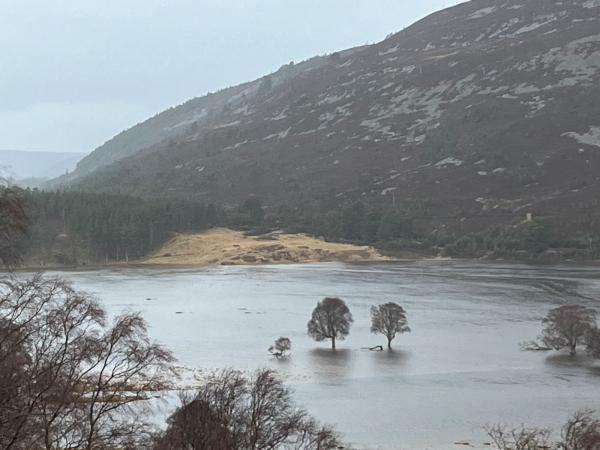Hutton scientist backs Climate Change Committee’s advice to UK Government
A leading climate change scientist from The James Hutton Institute has backed the Climate Change Committee’s advice that the UK Government prepare for at least 2°C of warming within just 25 years – but says that passing the previously agreed limit of 1.5°C “risks exceeding climate change tipping points”.
Dr Mike Rivington, a Land Use System Modeller with more than 22 years of experience researching climate change, issued his comments after the independent Climate Change Committee published new advice stating that the government should “at a minimum, prepare the country for the weather extremes that will be experienced if global warming levels reach 2°C above pre-industrial levels by 2050”.
The warning was delivered in a letter from Baroness Brown, chair of the committee, responding to a request from the government for advice on stronger climate change adaptation objectives.
It marks the first time the committee has recommended such a target, but Dr Rivington has stressed that the 1.5°C target set in the Paris Agreement shouldn’t be disregarded.
He writes:

The strongly worded advice from the CCC recommending the need for a greater emphasis and higher level of urgency for adaption to climate change, particularly extremes, is appropriate. We face increasing uncertainty in the mix of future interacting climate, geopolitical and economic conditions, hence there is an associated need for greater resilience in our economy, nature and particularly our food systems.
Underpinning our ability to be resilient to climate change shocks is the health and functionality of our ecosystems and nature (often referred to as Natural Capital), which if in a poor condition – as much of it is – will become more vulnerable to climate change impacts. Further deterioration of our Natural Capital will make us more vulnerable to climate change impacts. Therefore, a key support for building resilience and adapting to climate change is through investment in restoring and enhancing our Natural Capital and developing resilient and sustainable food systems. We also need to build resilience to shocks elsewhere in the world, particularly where our food comes from. This means transforming our food system to be adaptable, with a greater level of self-reliance, including better capacity for maintaining food reserves. All these adaptation transformations must also integrate with efforts to reduce greenhouse gas emissions.

We will need to cope with increasing variability in our climate, with higher risks of floods and droughts, meaning more deluge and drought conditions in the same growing season or year. Farmers will face further financial viability challenges as the risk of two or more poor years in a row increases. For example, multiple back-to-back years with droughts in the spring and or summer threaten crop production, as do wet winters, as soils become saturated with water for longer.
An important omission with the letter from the CCC to Minister Hardy is the need to recognise the increasing risks of exceeding climate tipping points if we pass the 1.5°C Paris Agreement target. We have already experienced record-breaking global mean sea surface temperatures that are leading to more rapid ice loss from Antarctica and thermal expansion of water increases sea level rise. For every 0.1°C overshoot past 1.5°C there is a substantial increase in the risk of crossing individual or multiple cascading climate and Earth system tipping points that will result in climate instability. Hence discussion in the letter to the Minister about risks of global temperatures above 2°C ignores the issue of tipping points becoming things that we are unlikely to be able to adapt to.
Blog by Media Officer, Matteo Bell, matteo.bell@hutton.ac.uk, and Dr Mike Rivington.
Disclaimer: The views expressed in this blog post are the views of the author, and not an official position of the institute or funder.
